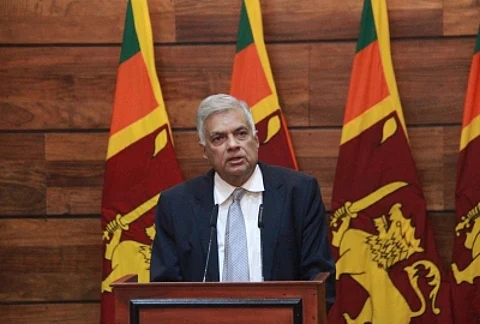The once powerful Mahinda Rajapaksa's SLPP which won 145 seats out of 225 IN the 2020 Parliamentary election has been divided into two sections now and is to support Ranil and Dullas. The party was divided with the immense public unpopularity over the allegation of corruption by the Rajapaksa family.
Ex-President Gotabaya Rajapaksa had to flee the country following three months of continuous protests after people were burdened by the debt-ridden economy with skyrocketing inflation.
People blamed Rajapaksa for his unforeseen decisions with massive tax cuts and overnight change from inorganic farming to organic for the downfall of food production and loss of jobs for the majority of farmers.
With no fuel, cooking gas, medicine, food, and fertilizer, people took to the streets from March 31, and amid mounting public protest Mahinda Rajapaksa and his cabinet had to step down on May 9, and on July 9, President Gotabaya Rajapaksa announced that he would resign when protesters took over his official residence, office and Prime Minister's official house, the Temple trees.
However, Rajapaksa fled to the Maldives and later to Singapore from where he announced his resignation. In the absence of a President, Wickremesinghe was appointed the Acting President. (AA/IANS)


